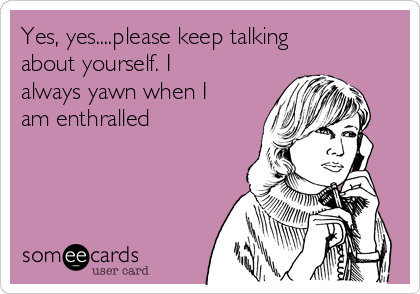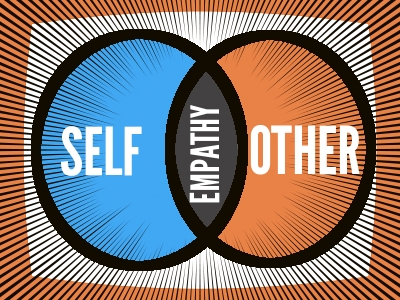During my time at university I have been meticulous in keeping my personal views, opinions and experiences separate from my research. The second my rear end was planted in my seat in DIGC330, everything changed. Now before you ask, no, the Fire Nation didn’t attack. Rather, I was introduced to the practice of autoethnography, a research method that combines the well-established fields of autobiography and ethnography. The aim of autoethnography is to produce “meaningful, accessible and evocative” research that is grounded in one’s personal experience (Ellis et al. 2011, p. 2). The resulting research product seeks to deepen our ability to empathise with people who are different from us (Ellis et al. ibid).
As interesting as autoethnography sounds, how does one actually go about doing autoethnography? First of all, it is important that one understands the research methods that have been combined to create autoethnography – autobiography and ethnography. Autobiography, at its core, is an account of a person’s life in which the author retroactively and selectively writes about past experiences” (Ellis et al. 2011). On the other hand, ethnography involves a researcher becoming a participant observer in a culture that is different to their own and “studying the culture’s relational practices, common values, beliefs and shared experiences” (ibid).
My understanding of autoethnography, essentially the lovechild of these two practices is that an autoethnographer draws upon their personal epiphanies stemming from their own culture, and telling these experiences whilst simultaneously analysing them. Analysis is an absolutely crucial component of autoethnography because without it, the researcher is basically just recounting their life and experiences without any further examination or introspection. And let’s face it, anyone can give a bland and boring account of their life.

Don’t be that person – analysis of your personal experiences and bias is critical (Julie2233212 2014)
Analysis further authenticates autoethnography as a research method by forcing the researcher to exercise self-reflexivity and introspectively examine the reason why they feel or think the way they do about a culture that is different to their own.
By recounting and critically examining one’s own personal and cultural biases and applying this knowledge to how one understands another cultural group, autoethnography can serve as a therapeutic method of seeking to better understand ourselves and our relationships. Autoethnography can also assist with reduce prejudice and promote cultural change (Ellis et al, ibid). What’s not to love?
I am excited to engage in my own autoethnographic research journey when I complete my major project. I would like to examine how my active participation in cosplay and the subculture in Australia has shaped my understanding of Japanese culture. I also plan to interview my grandparents, who know very little about cosplay, to gain a deeper understanding of how understanding and perceptions of Japanese culture can be shaped through exposure to the cosplay subculture in Australia.
Reference List
Bastian, H 2016, The biggest bias we have to deal with is our own, image, hildabastian.net, viewed 18 August 2017, <http://hildabastian.net/index.php/33-march-2016>
Ellis, C, Adams, TE, & Bochner, AP 2011, ‘Autoethnography: an overview’, Forum: Qualitative Social Research, vol. 12, no. 1, pp. 1-12.
Hayen, T 2014, Empathy, image, Hayen Centre for Psychotherapy and Counselling, viewed 18 August 2017, <http://www.toddhayentherapy.com/empathy-in-relationship/>
Julie2233212 2014, Yes, yes…please keep taking about yourself. I always yawn when I am enthralled, image, SomeEcards, viewed 18 August 2017, < https://www.someecards.com/usercards/viewcard/yes-yesplease-keep-talking-about-yourself-i-always-yawn-when-i-am-enthralled-0ad18/>


Great blog, clearly you know what you’re talking about! I found it both interesting and engaging as well as obviously well researched with a critical analysis. You broke down the concept of autoethnography really well and in a way that would be easy to read for people who in particular have no knowledge of what is involved and expected. Your own personal context i found interesting and important for the all round balance of the post and i particularly liked the line that autoethnography can serve as a “therapeutic method of seeking to better understand ourselves and our relationships. Looking forward to reading more!
LikeLike
This is one of the best blog posts on autoethnography that I’ve read so far. You’ve clearly engaged with Ellis’ writing and broken down his report on autoethnography in a clear and concise manner. Noting the concerns of Ellis et.al, would you say that your history of analytical research could make it difficult for you to now allow your emotions and personal thoughts to affect your research? I’d love to read an account of how you have engaged with autoethnography in your own life!
LikeLike
Entertaining blog. You seem to have a good grasp of the concept of “Autoethnography” and you have clearly picked apart the reading, including several others as indicated by your reference list. You touch on “epiphanies” and it would interesting to see you talk about that in relation to yourself. You clearly have the analysis side of autoethnography understood. I like to hear what you think about the different forms and approaches to ethnography that Ellis mentions in “Autoethnography: An Overview” as this type of research is more about the personal experience with the research process.
LikeLike
Your article really shows your deep understanding of the autoethnographic process. While the personal experiences of the writer are essential, it is the analytical element that gives weight to the whole thing. As you said, ‘anyone’ can recount their life, but as researchers we have the tools to more deeply connect our experiences using theory. I can’t wait to read about your experiences with cosplay culture. Excellent article, one of the best I’ve read so far!
LikeLike